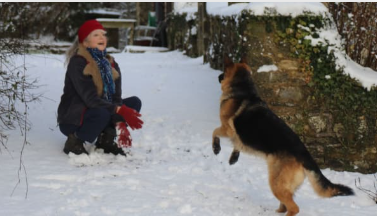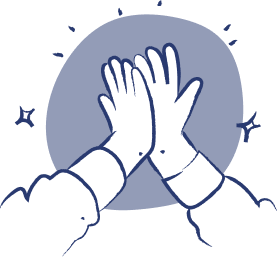By the end of the 20th century the medical profession had understood that there existed a serious post-viral condition, which came to be known as ME or CFS (Chronic Fatigue Syndrome), which is not down to ‘malingering’ or ‘yuppie flu’. What matters about this recognition is that we are no longer wasting energy on evasions and denial, but are putting attention into care and research.
Some months ago in 2020, doctors were beginning to see Covid-19 patients who had recovered but were/are now exhibiting severe post-viral symptoms. These may include exhaustion and weakness (‘fatigue’ – the rather 19th C term for disabling and continuous tiredness), unusual and persistent aches in the body, changes in the autonomic and sympathetic nervous systems, difficulties in co-ordination, sleep disturbance, neurological change – and others. ‘Long Covid’, as this has become known, is so distressing because when you’ve come through Covid-19 and survived, you expect a reasonable rise to recovery and well-being, and a return to everyday life. Many Covid patients have done this. But others now find themselves in the murky region of a post-viral condition, wondering how and when they will get their lives back.
It’s a shock to be this ill. It changes your perception, your place in your own life, your relationship to others. Perhaps you feel cast adrift by the virus whose greatest threat is past; you’ve survived; but you feel physically and emotionally exhausted. You may not be able to get up or down stairs. You may not be able to get out of bed at all. The usual tasks, however small, can be completely unmanageable. But the worst thing may be feeling that you ‘ought’ to feel better; you need to resume your life and responsibilities. Now, on top of being drained and flattened, you also feel frustrated, confused and guilty for not ‘succeeding’ in achieving full recovery.
There is one piece of good news; you aren’t alone. ‘Long Covid’ is already a recognized condition. The problem is that there is no quick fix or remedy for ‘long virus’ (whether from Covid-19 or any other infection) and ‘how long?’ is not a question that can be answered. Weeks? Months? More? These are questions for medical researchers, but for long virus sufferers, they aren’t the things to focus on. We have other, very difficult life lessons to learn.
Many years ago I was extremely ill with rubella (German measles), had a seizure and stopped breathing. I was resuscitated and spent 3 weeks in isolation in intensive care. When I was no longer infectious or unconscious, I was still ill: I couldn’t swallow, talk properly or walk, was having frequent paralysis attacks and was unable to read (alexia – ‘the inability to read or understand words as a result of brain disorder’ OED). A brilliant neurologist, Dennis Williams, diagnosed encephalitis. I was under his care for the next year, with a very strict regime of rest and non-stimulus, to ‘limit nerve damage’; no books, no television; one ten-minute visit a day. At that point, few people (including my family and I) had heard of encephalitis, but the neurologist was very clear about how dangerous it can be long-term. Having been brought back from the brink of death, I was extremely lucky. In the 1990s Encephalitis International (known then as the Encephalitis Society) began, and their invaluable work, support and research (eg. with Professor Tom Solomon’s team at Liverpool University) has raised the profile and awareness of this disease and its ravages. I had to change my career, but eventually made a remarkably good recovery, resumed my independent life, worked hard and assumed I was free from illness.
But fifteen years later, following an intestinal infection, I had a severe relapse. It wasn’t life-threatening this time, but it took months to recover and left me with life-changing neurological limitations. One of these is the inability to tolerate screens (which finished my television career), and another is recurrent post-viral syndrome.
‘Long virus’ forces us to reconsider – and this itself can be overwhelming. How do we cope when the natural state of the body has been compromised by illness and we aren’t rebalancing into full health and vitality? When your body is hurting, ill, or mal-functioning in some way, you naturally want to escape from it. Imagination is our asset and our strength; but we have to come back into the body to breathe properly – to ‘be’ – and survival is the body’s mode. There is so much information available on potential help – wellbeing talks and courses, self-help, diets, nutrition, exercise plans, programmes etc, – that it can be thoroughly daunting. You find yourself engaged in a ‘battle’ for recovery, when ‘fighting’ is actually the last thing you need to be doing. At the hardest time to trust yourself, trust is what is needed. Listen to your body; follow your intuition. Each day is different in terms of ability, so do what can you today without burning yourself out for tomorrow.
A brilliant doctor once said to me ‘You’re the expert. You know your body better than everyone. Listen to it’. At the time I was dismayed; by nature I am anti-authoritarian, yet I found myself wanting ‘the authority’ to tell me what to do, and how to do it. But he was right. Learning to listen and trust what your body needs is the best and most responsible thing you can do for yourself and those closest to you. Nothing about this is easy. I often find my mind/brain at odds with my body. When the former wins and I over-ride exhaustion or great pain (in my case, head), there is a real backlash. What ‘long virus’ often needs is rest, which may include a walk, however short, to enjoy the sun or rain on your face; or escaping into a good book or box set; letting the to-do list go.
This necessitates a lot of support from partner, family, colleagues and close friends. To be honest but not self-obsessed is difficult; it requires patience and courage on all sides. We have to trust the right people (let go of the ones who are judgemental, stressful or afraid) as much as ourselves. There are hopeless days when the ‘failure’ to be well prowls inside you, when you can’t be part of our success-ridden non-profit. But success should not be about money or status.
Covid-19 itself levels us out, and progressive thinking and action (as in communities working together over the past year) is challenging this outdated culture – however far there still is to go. Success is about being the fullest human you can be – and today that might mean giving up and crawling under the duvet without feeling guilty. Dishonesty to yourself and others is self-defeating; it uses up precious energy. The mind and body need time to recover from a long and/or serious illness, however awkward the timing is – and it will be. To step out of the busy, exciting and exhausting adrenaline of the outer world is the essential; there isn’t an alternative at this point. The longer the delay, the longer the recovery; and the body wants to recover.
Find more information about measles encephalitis here.


